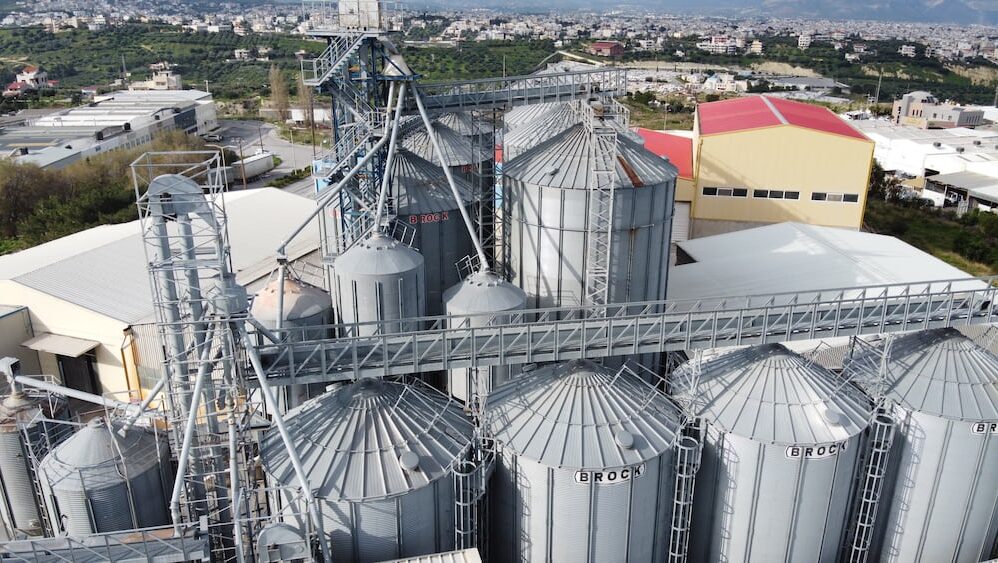Nigeria, often referred to as the “Giant of Africa,” boasts an immense agribusiness potential that remains largely untapped. With a population exceeding 200 million and a vibrant agricultural landscape, the country offers numerous investment opportunities within its food industry. In this blog post, we delve into the various avenues for investment in Nigeria’s agribusiness sector, exploring the key areas, challenges, success stories, regulatory landscape, and the promising future outlook.
The food industry is a cornerstone of Nigeria’s economy, providing employment, sustenance, and economic stability for millions. Agriculture contributes significantly to the country’s Gross Domestic Product (GDP) and remains a primary source of livelihood for a large portion of the population. With its vast arable land, diverse climate zones, and an array of agricultural products, Nigeria has the potential to become a global player in the agribusiness arena.
Stay tuned as we explore the various investment avenues within Nigeria’s agribusiness sector, shedding light on the areas of promise, the challenges that must be navigated, and the success stories that serve as inspiration for aspiring agribusiness investors.
Investment Climate in Nigeria
Nigeria’s agribusiness sector is poised for substantial growth due to recent economic trends and shifts. The nation’s young and rapidly urbanising population has led to increased demand for food products, creating a robust market for agribusiness ventures. The government’s commitment to diversifying the economy away from oil dependency has directed attention towards the agricultural sector, contributing to its growth and potential.
Government Initiatives and Support
Recognizing the strategic importance of agribusiness, the Nigerian government has launched a series of initiatives to promote investment in the sector. The Agricultural Transformation Agenda (ATA), for instance, aims to modernise and commercialise agriculture while enhancing productivity and profitability. Various funding schemes, capacity-building programs, and infrastructure development projects have been initiated to create an enabling environment for agribusiness investment.
These governmental efforts not only attract local investors but also garner interest from international players seeking opportunities in a growing market with vast potential.
Key Areas of Agribusiness Investment
Nigeria’s agribusiness landscape is teeming with opportunities across various sectors. From traditional farming practices to innovative technological advancements, investors have a wide array of avenues to explore within the food industry.
1. Crop Cultivation and Modern Farming Techniques
Investing in modern farming techniques presents an opportunity to increase crop yield and efficiency. Leveraging precision agriculture, sustainable practices, and advanced irrigation systems can significantly enhance productivity. With a diverse range of climates across the country, there’s potential to cultivate a wide variety of crops, from grains and vegetables to fruits and cash crops.
2. Livestock Farming and Dairy Production
Livestock farming, including poultry, cattle, and fishery, is another promising investment sector. The demand for high-quality protein sources is on the rise, making livestock production a lucrative endeavour. Additionally, dairy production and processing hold potential for value addition and meeting the growing demand for dairy products.
3. Agro-processing and Value Addition
Agro-processing involves transforming raw agricultural products into market-ready goods. Investing in processing and value addition activities such as food packaging, preservation, and manufacturing of processed foods can yield substantial returns. These activities not only reduce post-harvest losses but also contribute to food security and job creation.
4. Agricultural Technology and Innovation
As technology continues to shape various industries, agribusiness is no exception. Investment in agricultural technology (AgTech) solutions, including precision farming tools, remote sensing, and data analytics, can revolutionise the sector. These innovations enhance resource management, crop monitoring, and supply chain optimization, leading to increased efficiency and sustainability.
In the upcoming section, we’ll explore the opportunities and challenges inherent in Nigeria’s agribusiness landscape, shedding light on the potential rewards and obstacles that investors might encounter.
Stay tuned for a deeper dive into the agribusiness investment journey in Nigeria.
Opportunities and Challenges
1. High Demand for Food Products in Nigeria
Nigeria’s growing population, urbanisation, and changing dietary preferences have led to an increased demand for a diverse range of food products. This demand creates a significant market for agribusiness investors, offering the potential for substantial returns on investment. However, meeting this demand requires strategic planning and efficient supply chain management.
2. Potential for Export Markets and Foreign Exchange
Beyond satisfying domestic demand, Nigeria’s agribusiness sector offers opportunities to tap into international markets. Exporting agricultural products can generate foreign exchange earnings, contributing to the country’s economy. However, accessing global markets involves meeting stringent quality standards, which can be a challenge for some producers.
3. Infrastructure and Logistical Challenges
Despite its potential, Nigeria’s agribusiness sector faces infrastructure and logistical hurdles. Inadequate transportation, storage facilities, and distribution networks can lead to post-harvest losses and increased costs. Investors need to consider these challenges and explore ways to improve the agricultural value chain.
4. Climate and Environmental Considerations
Nigeria’s vulnerability to climate change impacts presents both opportunities and challenges. Adapting to changing weather patterns and adopting sustainable agricultural practices can enhance resilience and productivity. Investors who prioritise environmentally friendly practices can contribute to long-term growth while minimising negative impacts on the ecosystem.
Navigating these opportunities and challenges requires a strategic approach and a deep understanding of the Nigerian agribusiness landscape. In the next section, we’ll explore the various investment avenues available for those interested in capitalising on Nigeria’s agribusiness potential.
Stay tuned to discover how you can make a meaningful impact on Nigeria’s food industry while achieving financial success through well-informed investments.
Investment Avenues
Investing in Nigeria’s agribusiness sector offers a range of avenues that cater to various interests, expertise, and capital levels. Whether you’re a seasoned investor or a newcomer looking to make a difference, there’s a pathway for you.
1. Direct Investment in Agricultural Production
One of the most straightforward ways to invest in agribusiness is by directly funding agricultural production. This could involve acquiring farmland, cultivating crops, or raising livestock. Engaging in primary production allows you to have a direct impact on the food supply chain and contribute to the nation’s food security.
2. Funding Agro-processing Startups
Supporting agro-processing startups involves investing in businesses that add value to raw agricultural products. These startups focus on transforming crops into processed foods, beverages, and other marketable goods. By doing so, they reduce waste, create jobs, and contribute to the country’s economic growth.
3. Collaborations with Research Institutions
Collaborating with research institutions and agricultural experts can lead to innovative breakthroughs. By investing in research projects, you can contribute to the development of new agricultural technologies, improved crop varieties, and sustainable farming practices. These collaborations foster long-term advancements in the agribusiness sector.
4. Supporting Rural Agricultural Communities
Investing in rural communities can have a profound impact on the agribusiness sector. By providing resources, training, and infrastructure to smallholder farmers, you enable them to increase their productivity and livelihoods. Microfinance initiatives, cooperative partnerships, and educational programs can uplift rural communities and contribute to sustainable growth.
Regulatory and Legal Considerations

Navigating the regulatory and legal landscape is crucial when considering agribusiness investments in Nigeria. Understanding the laws and regulations governing land ownership, taxation, and investment incentives is essential for a successful and compliant venture.
1. Land Acquisition and Ownership Laws
Acquiring land for agricultural purposes involves adherence to specific regulations. Investors should be aware of the Land Use Act, which governs land ownership in Nigeria. Engaging legal experts to guide you through the process of acquiring land and obtaining proper documentation is essential to avoid legal disputes.
2. Tax Incentives and Investment Regulations
The Nigerian government offers various tax incentives and investment-friendly policies to encourage agribusiness investments. These incentives may include tax holidays, duty exemptions, and preferential tax rates. Familiarising yourself with these regulations and engaging with relevant government agencies can help you maximise your investment benefits.
Projected Growth of Nigeria’s Food Industry
The future of Nigeria’s agribusiness sector looks promising, with significant growth potential on the horizon. As the population continues to expand and urbanise, the demand for food products will rise. This creates opportunities for agribusiness investors to contribute to meeting this demand while simultaneously driving economic development.
Technological advancements will play a pivotal role in shaping the agribusiness landscape. The integration of data analytics, Internet of Things (IoT), and artificial intelligence will enhance efficiency, reduce waste, and optimise resource management. Sustainable practices will also take centre stage as consumers and investors increasingly prioritise environmentally friendly solutions.
Conclusion
In the vast expanse of Nigeria’s agribusiness potential lies a world of opportunities waiting to be harnessed. As we conclude this exploration of investment avenues in Nigeria’s food industry, let’s recap the key takeaways:
Nigeria’s agribusiness sector holds enormous potential driven by a growing population, demand for diverse food products, and governmental efforts to promote the sector.
From crop cultivation and livestock farming to agro-processing and technological innovation, there’s a niche for every investor’s interest and expertise.
The high demand for food products and export potential present lucrative opportunities, but investors must address infrastructure, logistics, and environmental considerations.
Investors can choose from various paths, including direct production, agro-processing startups, collaborations with research institutions, and supporting rural communities.
Navigating Nigeria’s legal framework, including land acquisition and tax incentives, is crucial for a successful and compliant venture.
Anticipate significant growth driven by technological advancements, sustainability initiatives, and the evolving needs of a burgeoning population.
As you contemplate your role in Nigeria’s agribusiness journey, remember that your investment not only has the potential for financial returns but also contributes to the nation’s economic growth, food security, and environmental sustainability.
We hope this blog post has equipped you with valuable insights to embark on your own agribusiness investment adventure in Nigeria’s thriving food industry.












